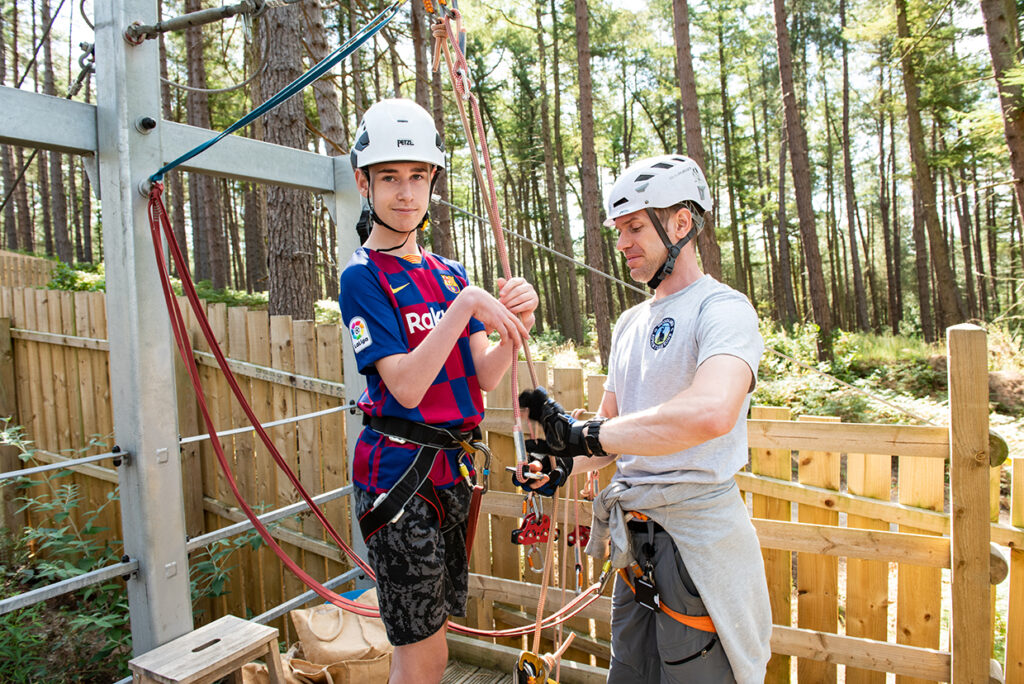Sex and sexual awareness
5 mins read
This advice applies across the UK.
A person who is not able to use part of his or her body still has an equal right to full sexual expression. Similarly, a disabled young person should have the same access to sex education, sexual health care, and opportunities for socialising and sexual expression as other young people.
In this article
What are the issues for young disabled people?
Feelings of isolation
While most people can expect to find role models and support from within their community or within the family, a disabled child is more likely to experience isolation when they are the only disabled family member.
It can be helpful for disabled children to be able to discuss experiences and share difficulties with others who understand because they have been through similar experiences.
Coming to terms with being disabled
Having an impairment, health or genetic condition or developmental delay often affects many different aspects of sexual development.
Accepting their condition can be a difficult journey for some disabled people. Getting support from other disabled teenagers can be vital. Parents may also have a difficult journey to make, towards accepting their son or daughter as a young adult who may have developed their own, and different, values and opinions.
The first time I saw other people with arthrogryposis, with wives, husbands and children, who were driving, working, living independently – I never worried about my future.
Body image
Images and attitudes are among the main problems faced by disabled people attempting to assert themselves as independent adults and positive sexual beings. There are many negative images that focus on dependence, guilt, pity and fear. These images can impact upon the self esteem of the disabled child and young adult.
Privacy
For disabled children who have been taught to comply during medical appointments, or who rely on someone else for intimate care, the notion of private areas of the body may be a concept difficult to understand. Similarly, young people with learning disabilities sometimes do not understand the difference between private and public places. The concept of public and private may need reinforcing.
When and how to talk with your child
Children are more likely to want to talk to you about sex if they are used to talking openly to you, not just about their condition in general, but other things like money, school work, friends, and so on. Encourage your children to talk to you about anything that worries them; showing an interest in what your child does and says will boost their self esteem.
- Start talking to your child early so that problems are less likely to arise – certainly before puberty.
- Some of the issues you might want to talk about are sex, contraception and sexually transmitted infections (STIs).
- Talk openly and casually – while you’re doing something else, like washing up or driving the car – as this gives the message that it is not something secretive or to be afraid of.
- Be open about your own beliefs and attitudes, but be prepared to discuss them and listen to your child’s point of view.
- Read books, leaflets and watch videos or take advantage for example of a situation that might arise on the television and which might help trigger a conversation.
Tips for talking about sex
- When talking about sex, take into account your child’s condition and be realistic. For example, it might take longer; it might mean experimenting a little.
- Reinforce the fact that the most important aspects of a relationship are love, friendship and mutual respect.
- Listen rather than judge. Try asking them what they think.
- Answer questions and don’t be afraid to say: ‘I really don’t know – let’s look it up together’.
I received sex education at home and my disability was not really discussed as an issue. My mum once said to me that she thought it might take me longer than most to get a boyfriend but she was sure I would eventually and she was right!
- Don’t bombard your child with questions or talk too much. Many children say it is awful to get a formal lecture on sex or have questions fired at them: ‘I asked a question and she immediately came back with, “Are you having sex then?”
- Try and hold on to your anxieties, answer the question and respect privacy.
- Remember that disabled people have relationships with other disabled people and with non-disabled people.
- Remember that same sex relationships are as common for disabled people as for non-disabled people.
- For children who rely on the help of care workers when going to the toilet, or who are used to undressing regularly for doctors, the concept of private parts may need reinforcing.
- Try to introduce your child to the correct medical names for the genitals and other body parts. These are going to be more consistently used by others.
Related information
Parent guide: Growing up, sex and relationships – a booklet to support parents of young disabled people
Download nowYoung person’s guide: Growing up, sex and relationships – a booklet for young disabled people
Download now
Sex and relationship education in school
There are new requirements for relationships and sex education (RSE). These came into force in September 2020 and apply to all schools…
Read more